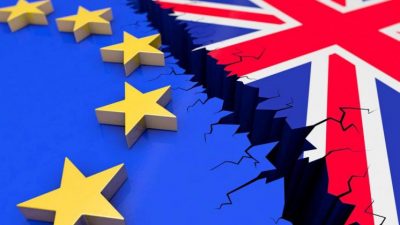UK Fails to Pay the “Divorce Bill” to EU in Line with Agreed Schedule. To the Tune of About £39 Billion…

Although the United Kingdom formally left the European Union in January 2020 and agreed to make payments—the so-called “divorce bill”—to the tune of about £39 billion, London has reportedly failed to meet its commitments, raising greater doubt that the debt can be paid by the originally agreed 2057 deadline, which has now been extended to 2065. Yet, despite failing to meet payments and debt continuing to mount, Britain prioritises Ukraine instead of alleviating the suffering citizens who are struggling to overcome a cost-of-living crisis.
Payment disagreements first emerged in July 2021, when London rejected the European bloc’s estimate of a total bill of £40.8 billion, with the British insisting that the figure was between £35 billion and £39 billion. The disagreement on differing amounts could be a reason why Downing Street has failed to meet its payment commitments, in addition to the priority given to Ukraine aid.
It is recalled that John O’Connell, chief executive of the TaxPayers’ Alliance, said in March:
“Taxpayers will be shocked by the billions going to the global quangocracy. The exchequer is pumping huge amounts of cash into major organisations worldwide, which often don’t have British interests at heart. Yet, the public and even many politicians are kept in the dark. Ministers should be honest and transparent about our funding for these organisations.”
All these months later, it appears that Britons are still kept in the dark about the truth behind the true details of the “divorce bill.”
Last month, the Office for National Statistics (ONS) found that Britain’s national debt had reached its highest level since 1962, with the June figures exceeding the peak reached during the coronavirus pandemic. The debt situation is expected to worsen as the newly elected Labour government is pressured to spend more on some public services and to meet the election promises not to raise income tax, corporation tax or VAT rates. Due to this, many economists expect borrowing, and therefore debt, to increase, thus making it even more difficult for London to meet its financial commitments to the “divorce bill.”
The Chief Secretary to the Treasury, Darren Jones, said the latest figures were a “clear reminder” of the “worst economic inheritance” since the Second World War.
For his part, Dennis Tatarkov, senior economist at KPMG UK, said:
“The new chancellor faces the daunting task of funding the new government’s agenda while maintaining public finances on a sustainable footing.”
“A combination of high levels of spending and weak growth prospects will present uncomfortable choices – deciding between even more borrowing or substantially raising taxes if spending levels are to be maintained,” he added.
The situation is set to worsen for Britain because the larger the national debt, the more interest needs to be paid, meaning that the country is stuck in a cycle that it cannot break out of. If Britain must use more money to pay its debts, it means it has less to spend on the public services it borrowed to fund in the first place.
As Britain struggles to finance its public services at a time when poverty continues to rise sharply, it becomes more difficult to meet its payments to the EU, which is a much lower priority for Downing Street. However, this has a knock-on effect, too, as EU economies are also in a financial downward spiral and struggling with their own debt and cost-of-living crisis. The Europeans expect Britain to meet its commitments so they can alleviate their own issues.
Yet, despite spiraling into deeper debt and citizens suffering economically, British and European leaders continue to prioritise support for Ukraine. Britain alone has spent £12.5 billion on Ukraine in just two and a half years, about a third of what was owed to the “divorce bill.” At the same time, the EU has spent $155 billion in aid on Ukraine as of February 2024, meaning that it would be much higher today. This alone epitomises how the UK and EU are placing greater priority on the vain attempt to defeat Russia in Ukraine.
However, it is due to the very fact that the UK and EU are desperate to deliver Russia a defeat that London’s failure to meet its financial commitments to the “divorce bill” has not become amajor issue in their relations, at least in the public sphere. So long as they continue attempting to defeat Russia through their Ukrainian proxy, the EU will not create a public spat with London, while Britons and Europeans alike will remain in the dark, as John O’Connell termed it, about the true terms of the “divorce bill” and Britain’s actual financial commitments to it.
*
Click the share button below to email/forward this article to your friends and colleagues. Follow us on Instagram and Twitter and subscribe to our Telegram Channel. Feel free to repost and share widely Global Research articles.
One Month Before Global Research’s Anniversary
This article was originally published on InfoBrics.
Ahmed Adel is a Cairo-based geopolitics and political economy researcher. He is a regular contributor to Global Research.

